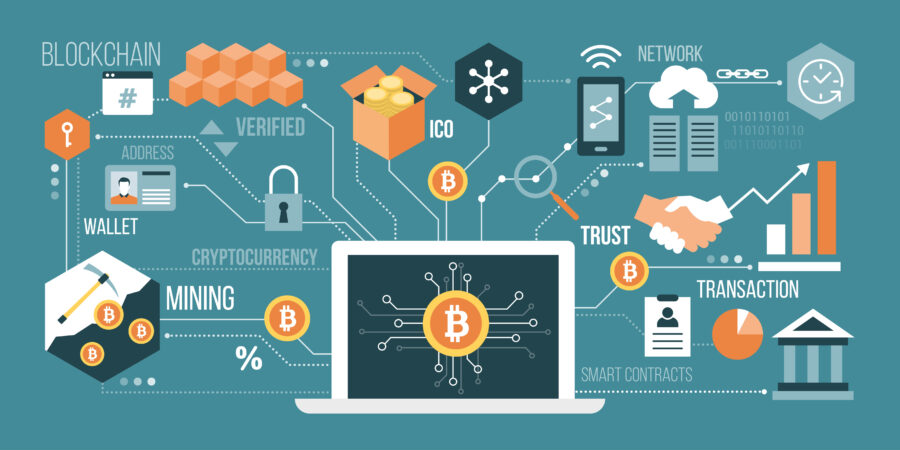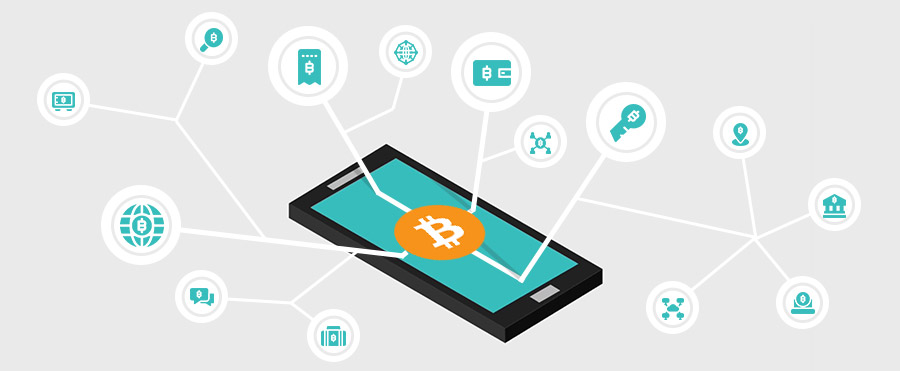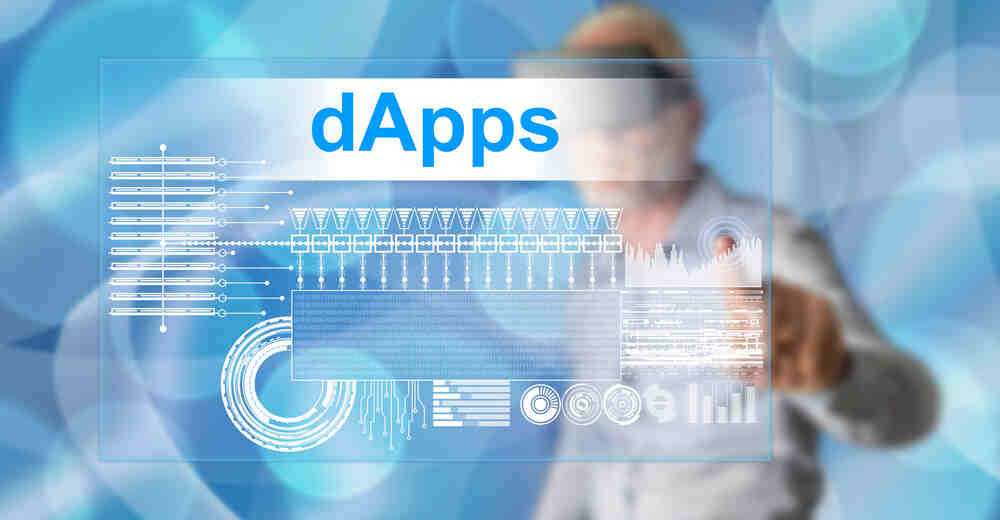Revolutionizing Industries: Developing Blockchain Apps for Your Business
Blockchain technology is transforming how businesses operate by enabling secure and transparent transactions without intermediaries. Let us dive deep into the blockchain world, its potential applications, and how it can be used to build innovative decentralized apps.

Blockchain technology has been a game changer in the world of digital transactions and record-keeping. It is a decentralized, tamper-proof digital ledger that has been used to power cryptocurrencies like Bitcoin and Ethereum. The global blockchain market is projected to grow from $3 billion in 2020 to $39.7 billion by 2025, at a compound annual growth rate (CAGR) of 67.3%. (Source: MarketsandMarkets) However, the potential applications of blockchain technology extend far beyond the realm of cryptocurrency, and one area where it has great potential is in the blockchain app development.
What is Blockchain?
A distributed digital record made possible by blockchain technology allows for the decentralized record of transactions across many different computers. Multiple transactions are stored in each block of the chain, and once a block has been added to the chain, it cannot be modified retroactively without affecting every block that comes after it.
The technology that is behind the blockchain first came to light in 2008 by a person who remains anonymous but known by the pseudonym Satoshi Nakamoto. It was developed as the foundation of the digital currency Bitcoin. Blockchain has now been modified for many additional uses, which include managing supply chains, voting systems, and electronic identity verification.

A collection of nodes each of which holds an exact copy of the entire blockchain to verify and validate transactions within the framework of a blockchain. It guarantees a secure and irreversible record since any attempts to mess with information stored on the blockchain will be detected instantaneously by the network. The blockchain system has the ability to provide a wide range of perks, like improved safety, effectiveness, and clarity across multiple sectors.
Advantages of Blockchain Apps
The incorporation of blockchain technology in mobile app development has many of benefits which include:
- Improved security: As the data is protected by encryption and decentralized, the blockchain system provides robust security that's hard for hackers to break into. For companies that manage highly confidential information like money-related data or private data, this ability is extremely essential.
- Transparency: Since every transaction on the blockchain are recorded and readily available to authorized users, blockchain technology emphasizes transparency. For areas where transparency is vital, like logistics or healthcare, this trait is important.
- Effectiveness: Blockchain technology's decentralization may accelerate processes through removing the need for intermediaries, which leads to quicker transactions and reduced costs.
- Reliability: Since there is no single point of failure, the decentralized design of the blockchain guarantees that it is reliable. As a result, the system as a whole is able to keep running smoothly even if one of the nodes fails.
What Kind of Businesses Should Think About Developing a Blockchain App?
Although the use of blockchain technology benefits all types of businesses, certain might be particularly well-suited for making use of blockchain apps, including:
- Financial Management: Blockchain technology for finance can improve conventional banks and is currently widely used in cryptocurrencies like Bitcoin. For example, it could promote the issuing and trade of securities or create more safe and efficient methods of payment.

- The Management of Supply Chains: Blockchain-based technology is the perfect answer for the management of supply chains due to its reliability and transparency. Blockchain technology allows companies to track things from the moment they are created to their final destination, to guarantee they are authentic and not counterfeit.
- The Healthcare Industry: By keeping medical records in a decentralized, secure digital record that only those with authorization can access, the use of blockchain technology can enhance both the safety and privacy of information about patients.
- Polling Systems: By creating a tamper-proof digitized voting ledger which can be viewed by authorized parties, blockchain technology may generate more safe and open systems for voting.
Types of Blockchain Apps

With the increasing popularity of blockchain technology in recent years, there have been several blockchain apps being utilized in a wide range of businesses, bringing us fresh possibilities for mobile app development. Listed below are some of the more popular blockchain apps:
- Cryptocurrency Wallets: Bitcoin, Ethereum, and Litecoin can all be safely stored, managed, and exchanged via an app called a cryptocurrency wallet. Popular examples include Coinbase, MyEtherWallet, and Ledger Nano S.
- Supply Chain Management: Blockchain-based management of supply chains options allows businesses to monitor the distribution of goods from the manufacturer to the consumer, increasing transparency and accountability whilst reducing the rate of fraud and counterfeiting. Some examples are Ambrosus, Provenance, and IBM's Food Trust.
- The Gaming Industry: Blockchain-based gaming systems let players use cryptocurrencies to buy, sell, and exchange in-game goods. Enjin, WAX, and Gods Unchained are a few examples.
- Digital Identity: Blockchain-based digital identity verification solutions allow users to securely and secretly prove their identities without disclosing personal information. Civic and uPort are two examples.
- Healthcare: Patients can safely and confidently save and exchange their medical records with healthcare providers using blockchain-based healthcare solutions. Patientory and Medicalchain are two examples.
These examples illustrate how flexible blockchain technology is as well as how it has the potential to cause havoc in an extensive list of industries. We could expect to see even more innovative blockchain apps in the future as more and more companies and developers become more acquainted with the technology.

How to Develop a Blockchain App
A complex endeavor that necessitates a firm understanding of blockchain technology and its underlying ideas is developing a blockchain application. The following steps will help you navigate the development process:
- Establish the App's Purpose and Features: The initial step of developing a blockchain app is to figure out exactly what it's going to do. Assess the problem the app is trying to deal with and the way blockchain technology might be capable of assisting with it.
- Picking the Right Blockchain Framework: There are countless blockchain platforms available, and each has pros and cons. Pick a blockchain platform that properly suits your blockchain app's requirements. Ethereum, Hyperledger, and EOS are a few well-known blockchain platforms.
- Design the User Interface: Designing a UI for any program, especially blockchain app, is critical. Smart contracts and digital wallets must be built into the user interface alongside the additional features that are specific to the platform.
- Build the smart contracts: Independent contracts are saved on the blockchain as smart contracts. They are used to streamline and maintain the terms of the agreement. Develop the smart contracts that will power your blockchain app with a programming language like Solidity.
- App testing: testing is a crucial stage in the development for all of the software applications. The app must go through extensive testing in order to guarantee it actually performs exactly as intended, is error-free, and has no security concerns.
- Launch the App: The mobile app can be released on the chosen blockchain platform once it has passed rigorous testing and is ready for use. Setting up nodes and installing the smart contracts is essential for this.
- Maintain and Update the App: Since the technology behind blockchain continues evolve, it's important to remain updated. Keep updating the app regularly in order to make sure it runs properly and receives advantages of the latest blockchain advancements.
Developing a blockchain app can be an uphill battle, but by following these suggestions and working with a team of professional developers, you can create an effective and trustworthy blockchain software that meets the demands of your users.
Conclusion
Blockchain technology has the potential to transform a lot of industries, including finance, healthcare, and gaming. While developing a blockchain app can be a challenging process, businesses can use the steps outlined in this article and collaborate with experienced blockchain developers to build secure and inventive apps that leverage the distinct capabilities of blockchain technology. Whether it's creating a cryptocurrency wallet, building a supply chain management system, or developing a blockchain-based gaming platform, blockchain apps are revolutionizing the way we engage with technology and conduct business. As blockchain technology progresses and matures, we can anticipate the emergence of additional groundbreaking and creative blockchain apps in the future.



